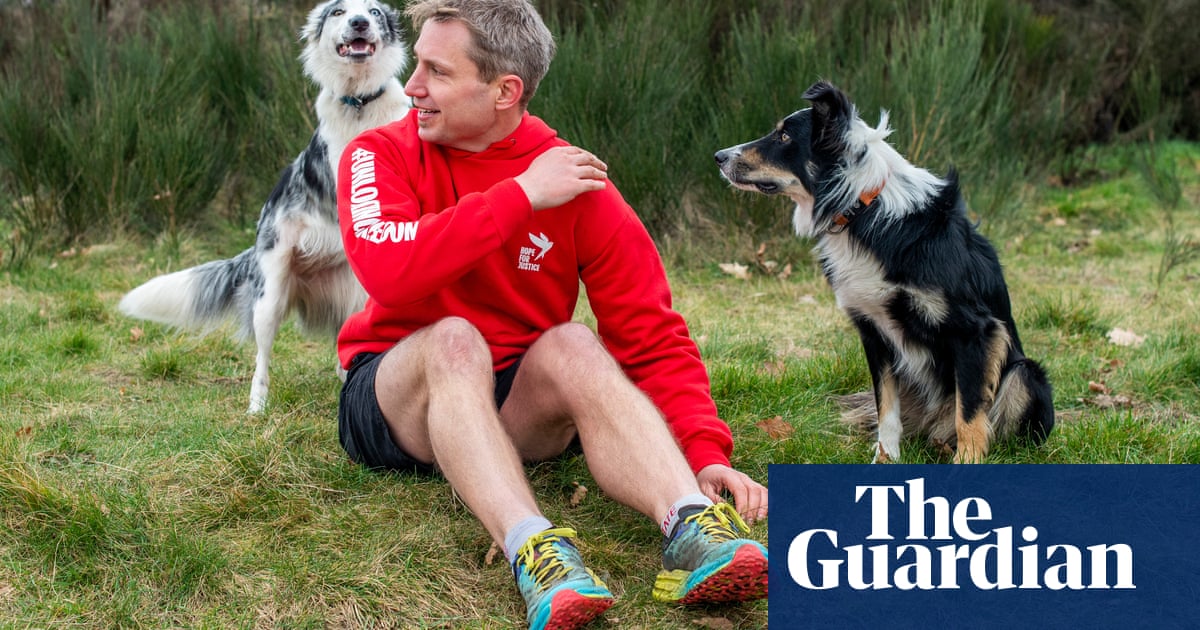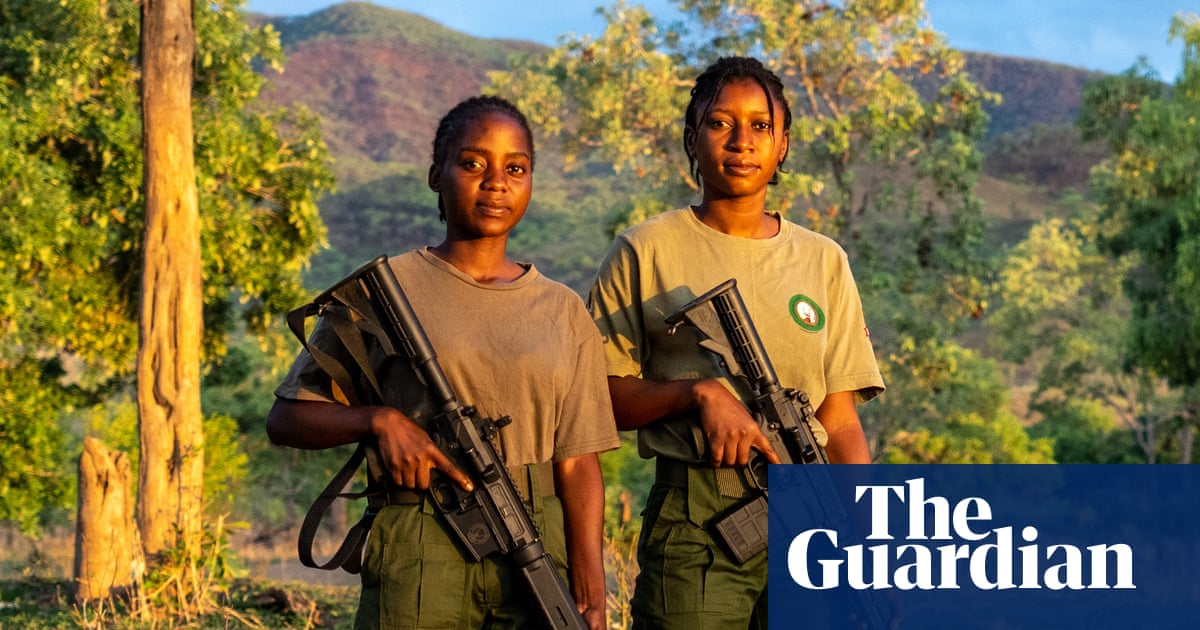
hen discussing the current state of the world with the creator of Rick and Morty, you’re talking to someone who has given the various means by which an apocalypse might come about more thought than most. As the voice of both the titular mad scientist and his naive, tagalong grandson, Justin Roiland has participated in dozens of such scenarios, each more emotionally devastating than the last, from “Cronenberged” nuclear-war mutants to humanity being overrun by hyper-intelligent cyborg dogs.
“The Earth needs a reprieve,” Roiland says. “We are in a sick system that’s designed to consume, and we’re tearing down the rainforest, and we’re polluting the oceans, and we’re doing all these things that are in service of a machine, the economy, all that stuff. Planned obsolescence, so stuff’s always breaking and you have to buy a new one, or there’s a new one that’s even better than the old one, so it’s ‘Buy! Buy! Buy! Buy!’ and ‘Make! Make! Make!’ And that’s just not sustainable in the long run for humanity.”
If you just read that in Rick’s gravelly, stream-of-consciousness drawl, punctuated by the occasional belch, then that’s understandable. Roiland has delivered many such diatribes across the show’s eight years and four wildly inventive seasons. “Though it’s funny,” Roiland says. “This is actually shit Corvo would say.”
Corvo is the lead character in Roiland’s new animated series, Solar Opposites, and is as far removed from the psychotic/coldly pragmatic (delete as appropriate) Rick as can be. An alien who crash-lands on Earth, Corvo, his platonic life partner Terry and their two “children” (replicants grown from pieces of the adults) must navigate existence on a strange new world filled with humans and their odd little customs and conniptions. It’s a show that shares much with Rick and Morty besides Roiland’s voice, from the fuzzy-pupilled animation to the barrage of brutal gags, filled with language that would make Ozzy Osbourne swoon and some frankly staggering violence. But it feels altogether different, softening Rick and Morty’s more spiteful points to the softer edges of a fish-out-of-water sitcom.
“Rick is a very tortured, dark, nihilistic character with a lot of baggage and interesting, dark stuff under the hood that we don’t even know about,” Roiland explains. “That show, as a result, can be very dark. Here, we’ve got four aliens that are very naive, very upbeat. That creates a different tone entirely. At its core, it’s really us being able to do a really interesting immigrant story. Looking at humanity through the lens of aliens allows us to talk about stuff that we are used to or take for granted. We’re able to pull that stuff up and go, ‘This is weird, this part of our culture’ – the kids navigating school, navigating puberty, and Corvo and Terry sort of navigating humanity and trying to figure how to fit in and what to do with themselves.”
It is an idea that sci-fi comedy has explored often over the years, from Mork and Mindy to 3rd Rock from the Sun. Appreciation of geek culture and sci-fi is also often born from such adolescent outsiderdom. This feeling is threaded through Solar Opposites, though Roiland didn’t feel particularly like an outcast growing up, fondly describing his senior year at high school in Manteca, California as, “Like Dazed and Confused. Everybody was friends with everybody. All the cliques. Everyone was cool with each other, it was insane. And to this day, I do not understand why that is.”
An alternative kid – one of “the weirdos, the freaks with our dyed hair and our painted fingernails” – he was drawn to cartoons early on. “I grew up drawing characters and coming up with worlds and wanting to tell stories. And the idea of doing animation was so far out of my reach back then. It was like a dream I felt I would never obtain. Live-action is haard, man. You gotta be on set at, like, 5am, you’re dealing with hair and makeup, you’re waiting around for resetting shots. Some people love that, but I found it to be pretty brutal. And I don’t like, necessarily, being in front of the camera.”
Rick and Morty’s vast success, then, and the global exposure it brought with it, came as quite a shock to Roiland and the show’s co-creator, Dan Harmon. “Listen, I’ll tell you this for sure: we never, ever imagined it would get as big as it’s gotten. Ever, ever, ever. I thought maybe it would be successful enough that we could have a good fanbase, and we could make them for as long as we wanted to make them, as the best case scenario. For it to be this global, massive-in-popularity thing, I still can’t wrap my head around it.” That sort of success does make getting other shows like Solar Opposites off the ground much easier. It’s also given Roiland the opportunity to offer a leg-up for other creatives of whom he is a fan, “to help them get their own vehicles and shows. That’s probably the coolest part about it all, to be honest.”
He’s energetic company, often having to stop himself from disappearing along tangents with a polite “Anyway, I’m rambling” or ‘Sorry, I’m getting off topic”. It isn’t a huge stretch to see how a seemingly innocuous thought could easily spiral into one of the worst-case, down-the-rabbit-hole, taken-to-its-absolute-extreme scenarios that Rick and Morty is famous for. Or in The Wall in Solar Opposites, the childrens’ bedroom display cabinet into which they put miniaturised humans, which soon becomes a freewheeling descent into Mad Max-esque post-apocalyptic horror. With Rick and Morty not returning until at least the second half of the year, fans will find plenty to keep them sated here.
“I need to feel that feeling of: ‘I know in my gut that this is going to be really cool and awesome’,” says Roiland. “I felt that way with Rick and Morty, and I feel that way with Solar Opposites. If I don’t feel that, it’ll sort of just go away, or won’t happen.” And though Covid is “a nightmare”, and he’s brimming with praise for Matt Stone and Trey Parker, he doesn’t feel the need to “do a South Park” and address it. “For me, [TV] is a reprieve from all of this chaos. Creating stories that don’t have anything to do with that stuff – that are really awesome, fictional tales that people can escape into. I’m escaping into the making of them, with the hope that people can escape into them by enjoying them, too.”












